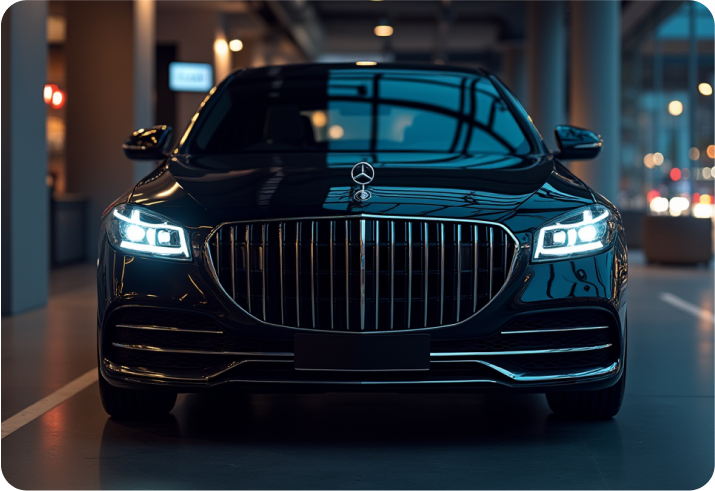What is the difference between first-party and third-party insurance?

With the increased usage of the internet and digitalization, purchasing policies have become simpler and easier for users. Several firms are offering their plans through various means on the internet, making comparing and selecting the proper insurance more efficient.
Among these are first-party and third-party insurance, which are commonly used by clients.
Benefits of first-party insurance
First-party insurance has lots of advantages for you! When you have first-party insurance, it means you are protecting yourself and your belongings. If something bad happens, like an accident or theft, this insurance will help cover the costs. It gives you peace of mind knowing that you won't have to pay everything out of your pocket.
Your car, home, or business will be safer with first-party insurance. You won't need to worry about unexpected expenses ruining your day. So, it's like having a safety net that keeps you secure when things go wrong. That's why first-party insurance is a smart choice!
Also Read: Why do we need car insurance?
What is First Party Insurance?
First-party insurance is insurance for you, just for your automobile. It is also known as a Comprehensive car insurance policy since it covers coverage for own-car damage, third-party liability, and personal accident. The following are the benefits of first-party insurance:
Covers damage to your car
Damage to your vehicle is covered by first-party insurance. It will encompass all types of repairs and replacements that must be performed to the automobile due to various reasons such as theft, accident, or natural catastrophe. However, the level of damage covered is determined by various firms, for which insurance providers must be contacted.
Also Read: How to save money on car insurance?
Covers your medical expenses
First-party insurance allows the party to be included in medical coverage. In this situation, the individual will be reimbursed for any reasonable and necessary medical expenditures incurred as a result of the accident, regardless of the party's culpability.
Covers legal expenses
According to the MVA, it is not required to pay the interest of the first party in four-wheelers. However, if the first party suffers physical harm, property damage, or death, the first party will be legally obligated to reimburse the third party only if the third party is insured.
Also Read: How to select the best insurance package for your car?
Benefits of third-party insurance
Third-party insurance brings many benefits and protects you from unexpected troubles. If you accidentally cause damage to someone else's property, this insurance covers the costs so you won't have to pay from your pocket. It also provides financial support if you accidentally injure someone, covering their medical expenses.
Third-party insurance is mandatory in many places for vehicles, ensuring you are legally compliant. Moreover, it gives you peace of mind, knowing you won't face hefty bills in case of accidents. It's a smart choice for anyone, offering protection and financial security when accidents happen, without putting a strain on your wallet.
What is Third Party Insurance?
Third-party insurance covers the third party to be insured by the first or second party in the event of harm to it. In India, car owners are required to obtain at least third-party insurance; else, they would face a substantial fee or face legal penalties.
The benefits of going for third-party insurance are:
Covers legal expenses for other people
Third-party insurance legally and financially protects the individual in the event of physical harm or death of a third party, as well as providing payments if damage is caused to the third-party insured vehicle.
Covers medical expenses for other people
Third-party insurance provides medical expense assistance to the insurer in case of an accident or death.
Covers damage to other people’s property.
If any damage is made to another person's property or car, it will be covered by third-party insurance. For example, if the first-party insurance gets reimbursed by the third-party insurer for property damage.
Which type of Insurance is right for you?
Before you can decide which insurance is best for you, you should be aware of the third-party insurance meaning and why it is essential in India. Even if you do not get first or second-party insurance, it is critical to have third-party insurance, especially if you own a two-wheeler. If you are discovered driving without insurance, you may face legal repercussions or pay a fine.
Finally, whether first-party insurance or third-party insurance is preferable. So, if you own an automobile, getting first-party insurance is highly recommended because it is comprehensive. The first-party insurance coverage covers you, your automobile, even if it is your fault and any natural disaster up to a certain sum. Such benefits, however, are not covered by third-party insurance. However, it is worth noting that third-party insurance is far less expensive than first-party insurance. As a result, it is advisable to research the appropriate insurance for your needs.
Also Read: 10 Ways to Save On Your Car Insurance
Conclusion
There are several vehicles on the road in India, including two-wheelers, three-wheelers, and four-wheelers. As a result, they must obtain insurance to prevent any type of liability. Finally, first-party and third-party insurance fulfil distinct functions. The first-party insurance policy includes add-on coverage to supplement the first-party insurance coverage. Both, though, are great in their way. It all relies on your budget and the insurance provider's criteria. When it comes to second hand luxury cars, getting the right insurance is equally important to protect your investment and ensure peace of mind.
FAQs
What are the factors to consider while buying third-party insurance?
One of the most important things to consider in third-party insurance is that it is the primary insurance and it will provide you protection against the injury or damage caused to a third person’s property or vehicle.
How to choose the right insurance for your needs?
To choose the right insurance, you need to compare the prices at which the different companies are selling their insurance. From there, you can select the most reliable insurance plan with better service and a good settlement ratio. That’s it! You are good to go now.
Is first-party insurance mandatory?
As per the Motor Vehicle Act, of 1988, first-party insurance is not mandatory. It is the third-party insurance that is mandatory as it covers all the basic coverage.
What are the different types of car insurance coverage?
There are a total of five types of car insurance coverage, namely,
1. Third-Party Liability Only Cover
2. Collision Damage or Own Damage Cover
3. Personal Accident Cover
4. Zero Depreciation Insurance
5. Comprehensive Car Insurance
How do I file a car insurance claim?
To file a car insurance claim, certain documents are required. They are:
· Insurance policy’s copy
· FIR copy
· Car registration certificate copy
· Claim form – filled and signed
· Driving license copy
· Repair estimate details
· If body injury is faced, then a medical report and expense copy
· Other expenses incurred, its original copy
More Blogs To Read
No Claim Bonus For Car Insurance: All You Need To Know!
Will Your Car Insurance Cover a Diminished Value Claim?
Car Warranty Vs Car Insurance: Which One To Consider While Buying Used Cars

 By Admin
By Admin









